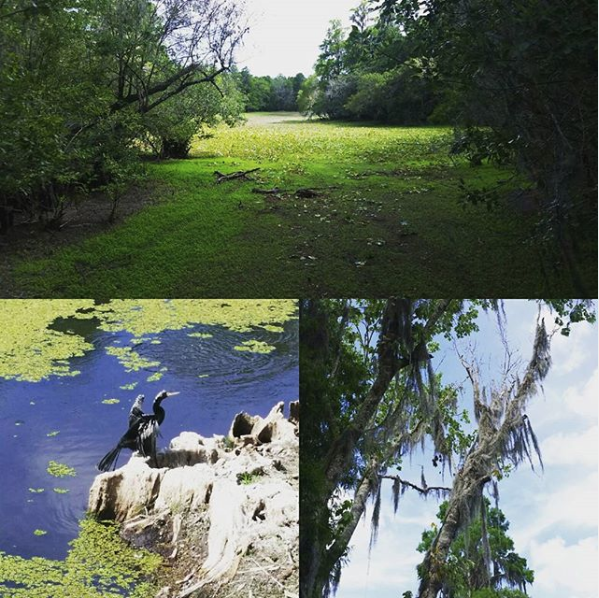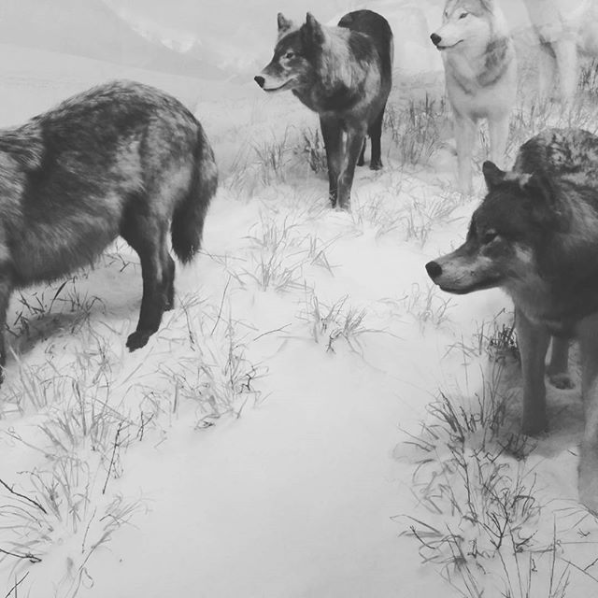My personal glimpse into the first half of the 21st Century for some yet to be known future
Tuesday, May 23, 2017
Thursday, May 18, 2017
Sunday, May 14, 2017
Infamous solar farm outside of Las Vegas
Location:
Nipton, CA 92364, USA
Saturday, May 13, 2017
Mesa and more
Location:
Jamestown, NM 87347, USA
Friday, May 12, 2017
Tuesday, May 09, 2017
#Sleeping in to #sunlight on my lap
Labels:
Daily Life,
Pet,
Photo
Location:
Broomfield, CO, USA
Sunday, May 07, 2017
Friday, May 05, 2017
Thursday, May 04, 2017
Dear apps (any of you), if you want to remain on my phone, don't take over my logon screen and require me to do more to access my phone. Adding an additional screen when I access my phone (especially if your app's purpose is not related to controlling access) is a guaranteed way to be uninstalled. That is all.
Wednesday, May 03, 2017
Tuesday, May 02, 2017
Monday, May 01, 2017
Thursday, April 20, 2017
Monday, April 17, 2017
Saturday, April 01, 2017
Friday, March 31, 2017
Sunday, March 26, 2017
Wednesday, March 22, 2017
Planetizing Pluto
It seems that main reason why we care so much about what is and is not a planet is due to the Astrological origins of Astronomy. The word "planet" is derived from a Greek word for "wanderer", as in a star that wanders around the sky. Earth wasn't considered a planet by this ancient definition.
Today, the term planet isn't special, and things we call planets shouldn't be special either. The current definition of the word "planet" by IAU doesn't make any sense since it pretty much invalidates all the planets of "planet" status with the 2006 addition "A planet is a celestial body that has cleared the neighborhood around its orbit." For example, Pluto is tied to Neptune's orbit. So, technically, Neptune's orbit hasn't been cleared of other objects (the biggest being Pluto's system), so Neptune isn't a planet. IAU definition presents us with a mess. We need to stop treating the word "planet" like it's some special term. "Planet" is just a word and it should be used to describe a well defined class of objects that aren't determined by ancient superstitions.
The definition of "planet" adopted in 2006 by the IAU actually invalidates all other planets from the class as well, particularly the big ones. Also, the IAU still named Pluto a type of planet called "Dwarf Planet" while in the same breath saying that it is no longer a planet. These oversights were due to the 2006 definition not being vetted by scientists in the field of study (which is supposedly a violation of IAU policy). Why was this definition pushed so hard that it by-passed normal procedures? Someone was trying to game the system.
In my opinion, the whole thing is a mess because Michael Brown (self-described "Pluto Killer") and others of similar opinions wanted to have some fun trolling the IAU. He has reportedly stated many times how much fun he had with the reclassification of Pluto. If anything is emotional, it was the whole effort to "demote" Pluto for a bit of fun.
The main reason we have trouble with this whole "moon" and "planet" classification is because of our own Earth-centric view of our solar system. The reason some people try to protect the word "planet" is rooted in ancient superstitions that people don't realize they are still perpetuating. We need to break free of this ancient beliefs and just use science to categorize things in a neutral and fact based manner. We need a real definition for the word "planet" which isn't implemented for unvetted and emotional reasons, but rather being based on hard facts. We need a definition developed by a body of Planetary Scientists who base their conclusions on geophysical traits.
For more information about Pluto and New Horizons, please read Chasing New Horizons.
Today, the term planet isn't special, and things we call planets shouldn't be special either. The current definition of the word "planet" by IAU doesn't make any sense since it pretty much invalidates all the planets of "planet" status with the 2006 addition "A planet is a celestial body that has cleared the neighborhood around its orbit." For example, Pluto is tied to Neptune's orbit. So, technically, Neptune's orbit hasn't been cleared of other objects (the biggest being Pluto's system), so Neptune isn't a planet. IAU definition presents us with a mess. We need to stop treating the word "planet" like it's some special term. "Planet" is just a word and it should be used to describe a well defined class of objects that aren't determined by ancient superstitions.
Always emotions
One of the common statements by those who argue against the application of the term "planet" to Pluto is that those who want to categorize Pluto as a planet want this for "mostly for emotional reasons". However, the very reason Pluto was "demoted" was for mostly emotional reasons. Here's how:The definition of "planet" adopted in 2006 by the IAU actually invalidates all other planets from the class as well, particularly the big ones. Also, the IAU still named Pluto a type of planet called "Dwarf Planet" while in the same breath saying that it is no longer a planet. These oversights were due to the 2006 definition not being vetted by scientists in the field of study (which is supposedly a violation of IAU policy). Why was this definition pushed so hard that it by-passed normal procedures? Someone was trying to game the system.
In my opinion, the whole thing is a mess because Michael Brown (self-described "Pluto Killer") and others of similar opinions wanted to have some fun trolling the IAU. He has reportedly stated many times how much fun he had with the reclassification of Pluto. If anything is emotional, it was the whole effort to "demote" Pluto for a bit of fun.
A Different Perspective
What would our thoughts be if we evolved on a rocky orb that revolved around some Gas Giant? If we looked out at this alternative solar system, we'd see all these other rocky orbs; some orbiting one of several Gas Giants and some orbiting the primary star. Would all the Gas Giants be known by the same name that we'd called our own rocky orb? No. We'd call the Gas Giants something else, and all the rocky orbs would be called by the same classification as our own world, regardless to them orbiting a Gas Giant or orbiting the star. There wouldn't even be a concept of "moon".The main reason we have trouble with this whole "moon" and "planet" classification is because of our own Earth-centric view of our solar system. The reason some people try to protect the word "planet" is rooted in ancient superstitions that people don't realize they are still perpetuating. We need to break free of this ancient beliefs and just use science to categorize things in a neutral and fact based manner. We need a real definition for the word "planet" which isn't implemented for unvetted and emotional reasons, but rather being based on hard facts. We need a definition developed by a body of Planetary Scientists who base their conclusions on geophysical traits.
For more information about Pluto and New Horizons, please read Chasing New Horizons.
Monday, March 20, 2017
Tuesday, March 14, 2017
Monday, March 13, 2017
60 cents equals 1.43 dollars

- Check = $6.42
- Cash = $7.02 (five dollar bill, two dollar coins and two pennies)
- and the change you get back is $1.43.
The cashier tells me she thought the two dollar coins were quarters. Of course, that meant that the change she should have given me based on this mistake was 10¢, not $1.43. So, the manager comes over to help out. At first, he insists that my bill was $6.52 (the change that the cashier thought I tendered). I had to correct him twice. He finally figures it out, takes the change back and hands me 50¢. I don't know where everyone learned math, but that isn't quite right either. After correcting him one last time, I finally get back my 60¢ change.
That will learn me not to pay cash!
Labels:
Economy,
Infamous Story,
My Life
Location:
Waltham, MA, USA
Saturday, March 11, 2017
Subscribe to:
Posts (Atom)
















































